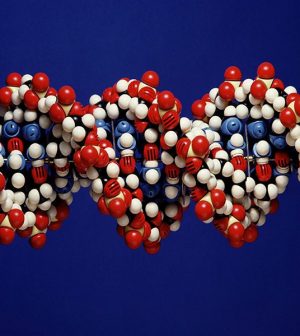- Could Your Grocery Store Meat Be Causing Recurring UTIs?
- Are You Making This Expensive Thermostat Error This Winter?
- Recognizing the Signs of Hypothyroidism
- 10 Strategies to Overcome Insomnia
- Could Artificial Sweeteners Be Aging the Brain Faster?
- Techniques for Soothing Your Nervous System
- Does the Water in Your House Smell Funny? Here’s Why
- Can a Daily Dose of Apple Cider Vinegar Actually Aid Weight Loss?
- 6 Health Beverages That Can Actually Spike Your Blood Sugar
- Treatment Options for Social Anxiety Disorder
Prenatal Test Advance May Help Spot Serious Gene Mutations

Scientists who found a way to use amniotic fluid to sequence the entire genome of a fetus say the breakthrough could significantly increase detection of genetic conditions during pregnancy.
Researchers tweaked a common prenatal test called amniocentesis. In that procedure, amniotic fluid is taken from a pregnant woman’s uterus and analyzed for abnormalities in the fetus.
Currently, amniocentesis can diagnose conditions such as Down syndrome and cystic fibrosis, but cannot detect most disease-causing genetic mutations.
In this new study, researchers found that combining amniocentesis with whole-genome sequencing in 31 pregnant women enabled analysis of a fetus’ entire genetic makeup for harmful mutations.
The findings were published recently in the journal Clinical Chemistry.
Study leader Brock Peters, from Complete Genomics in San Jose, Calif., said the new method could supplement current testing.
“This type of additional information has the potential to identify many of the causes of serious birth defects that are currently missed,” he said in a journal news release.
“Finally, we believe a high-quality genome should be considered an investment in the child’s future, and having this information before the child’s birth can be enormously beneficial should any medical emergencies arise,” Peters said.
More information
The March of Dimes has more on prenatal tests.
Source: HealthDay
Copyright © 2026 HealthDay. All rights reserved.










